#palestinian writers
Text
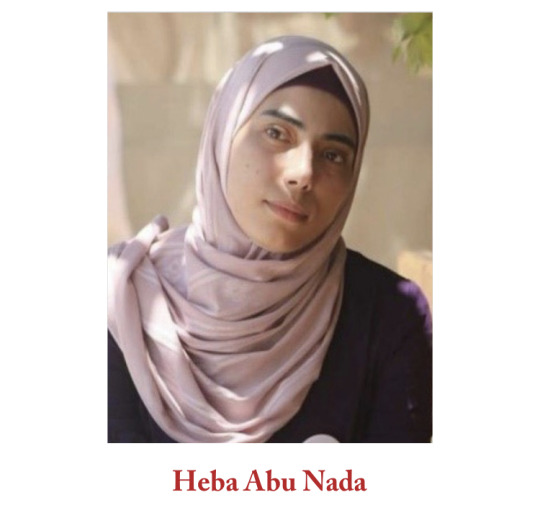

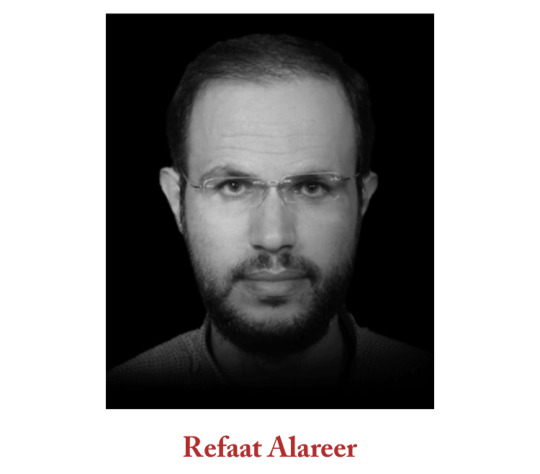
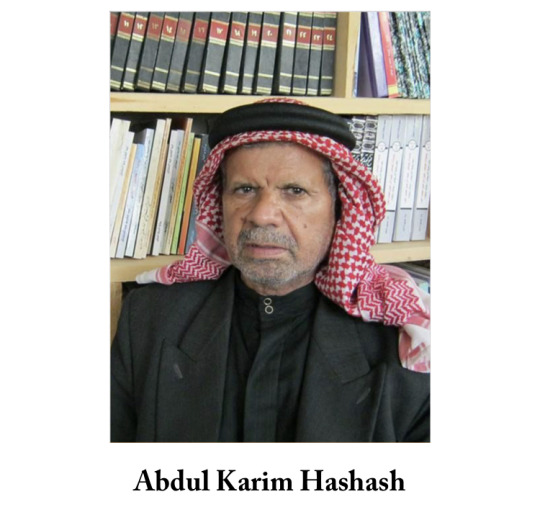

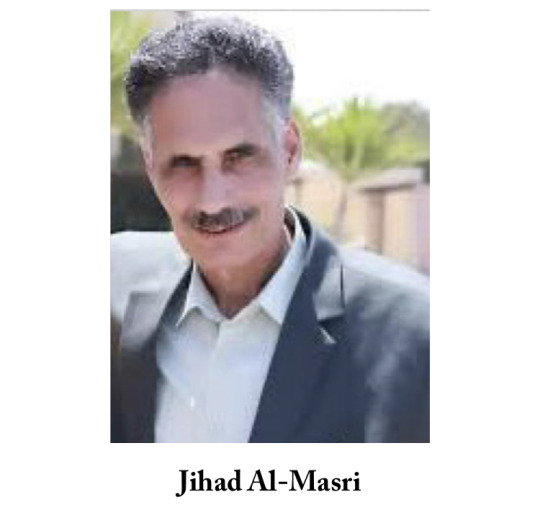
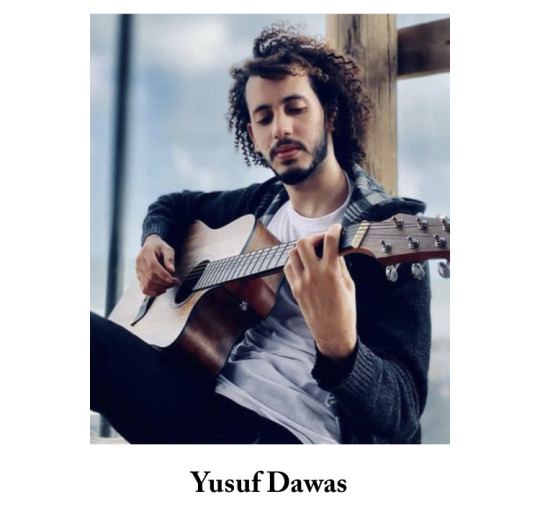

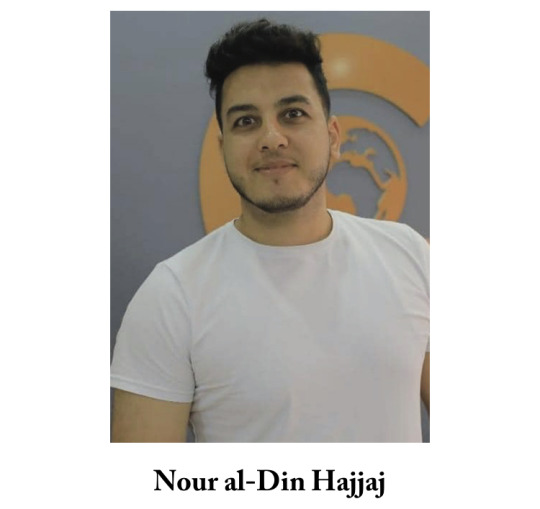
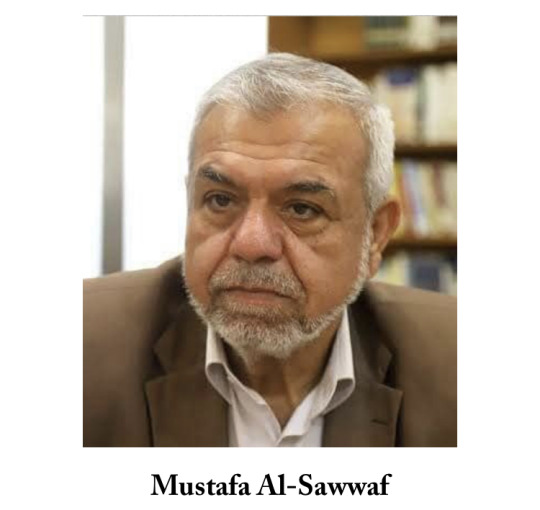
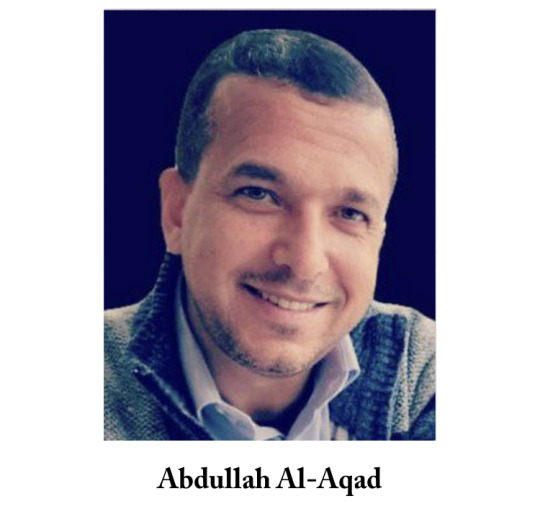
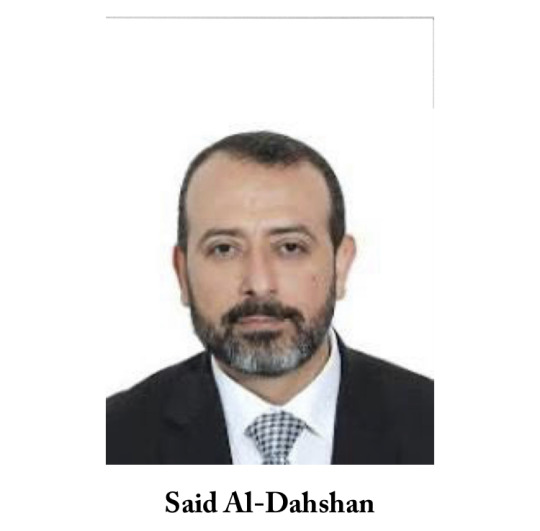


[Text ID: “It shall pass, I keep hoping. It shall pass, I keep saying. Sometimes I mean it. Sometimes I don’t. And as Gaza keeps gasping for life, we struggle for it to pass, we have no choice but to fight back and to tell her stories. For Palestine.”]
#free palestine#from the river to the sea palestine will be free#gaza#palestinian poets#palestinian writers#🇵🇸#ethnic cleansing#genocide
10K notes
·
View notes
Text
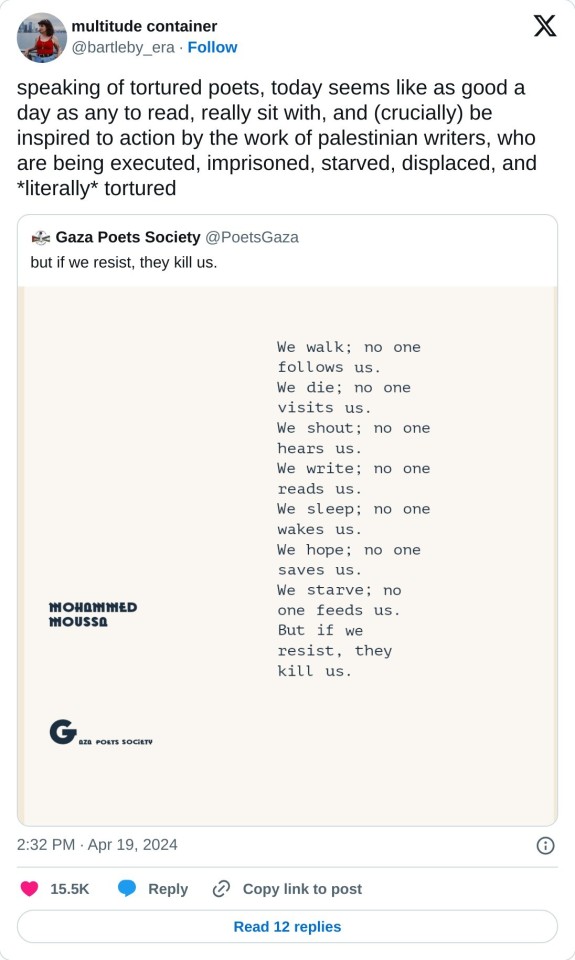
#yemen#jerusalem#tel aviv#current events#palestine#free palestine#gaza#free gaza#news on gaza#palestine news#news update#war news#war on gaza#palestinian poetry#palestinian writers
5K notes
·
View notes
Text
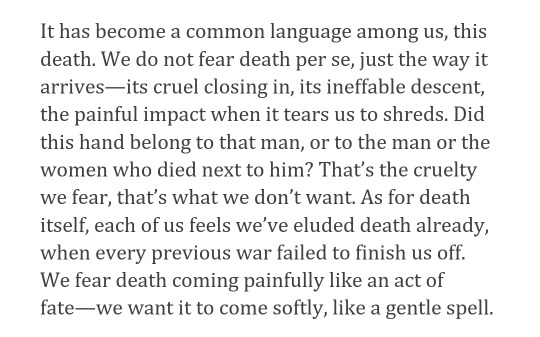
—Excerpts from "We Are Ok In Gaza" by Atef Abu Saif, a Palestinian Writer.
#poetry#words#classic literature#literature#romantic academia#quotes#english literature#quote#palestinian literature#palestine#palestinian poetry#palestinian writers#gaza#ceasefire#free gaza#gaza strip#free palestine
3K notes
·
View notes
Text
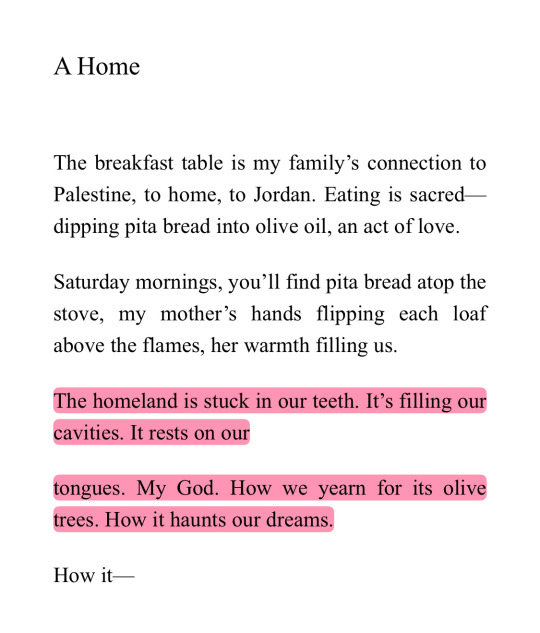
noor hindi, “a home” from dear god. dear bones. dear yellow.
228 notes
·
View notes
Text
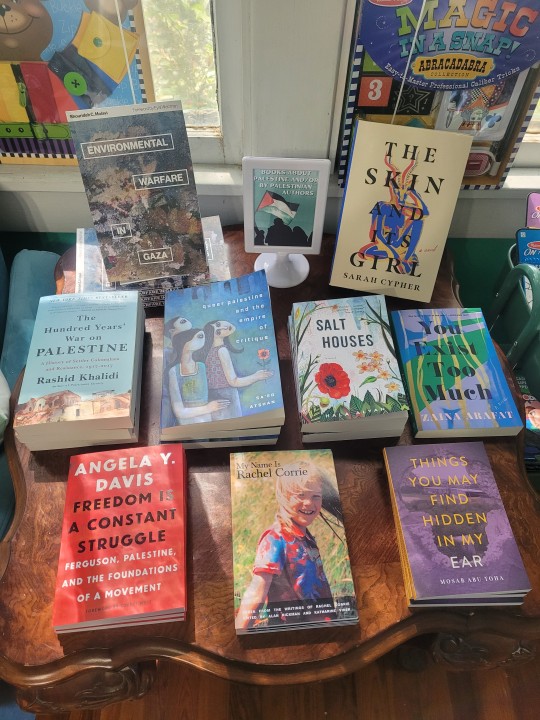
Palestine books at the local queer bookshop!
[Image id: a small table with books laid out on it. A small sign reads: BOOKS ABOUT PALESTINE AND/OR BY PALESTINIAN AUTHORS, with a photograph of the Palestinian flag. The books on the table are: "Environmental Warfare in Gaza" by Shourideh C. Molavi, "The Skin and Its Girl" by Sarah Cypher, "The Hundred Years' War on Palestine" by Rashid Khalidi, "queer palestine and the empire of critique" by Sa'ed Atshan, "Salt Houses" by Hala Alyan, "You Exist Too Much" by Zaina Arafat, "Freedom Is A Constant Struggle" by Angela Davis, "My Name is Rachel Corrie", and "Things You May Find Hidden in My Ear" by Mosab Abu Toha. /end id]
I got copies of You Exist Too Much and Things You May Find Hidden in My Ear, and the cashier was reading the Hundred Years War. 🇵🇸
#free palestine#free gaza#i stand with palestine#palestine#gaza#resistance#mosab abu toha#palestinian poets#palestinian writers#palestinian literature#queer#books#rachel corrie
110 notes
·
View notes
Text

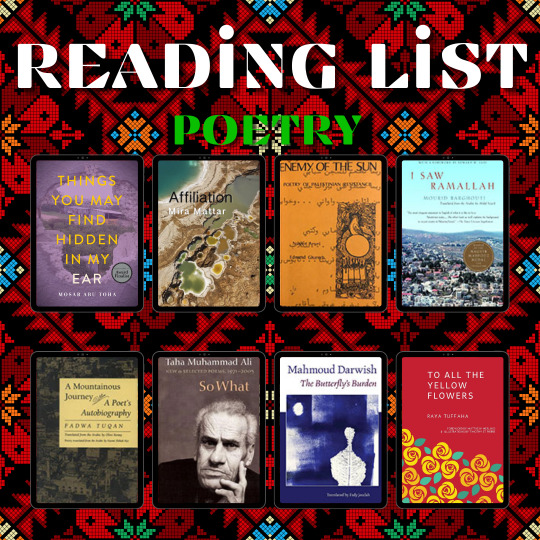
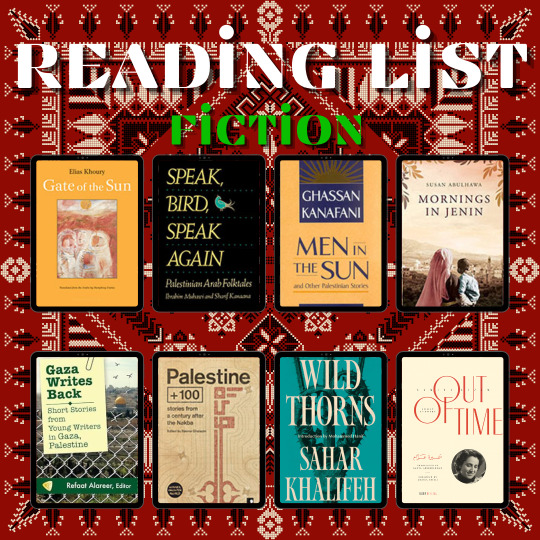
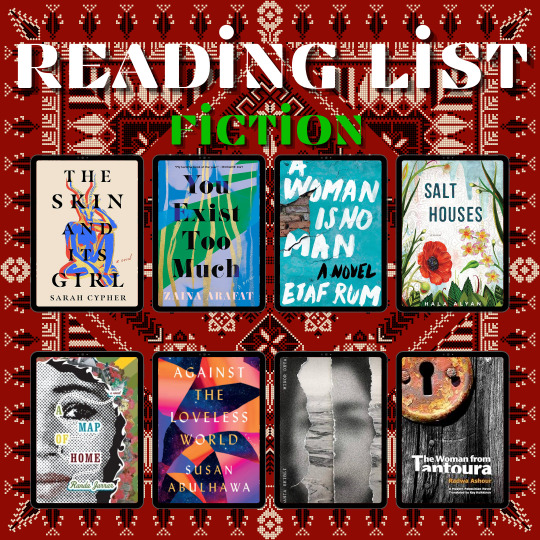
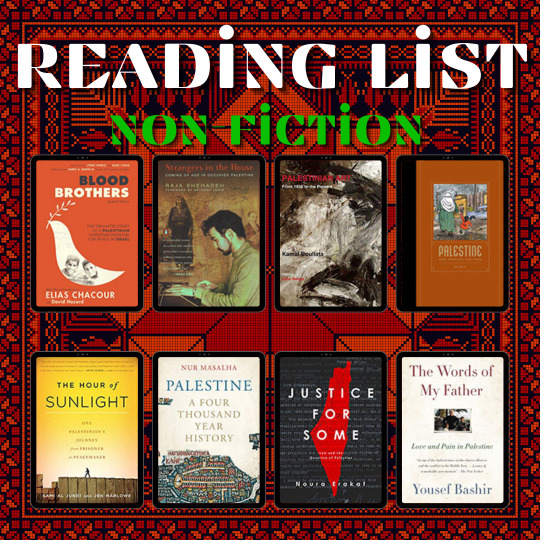

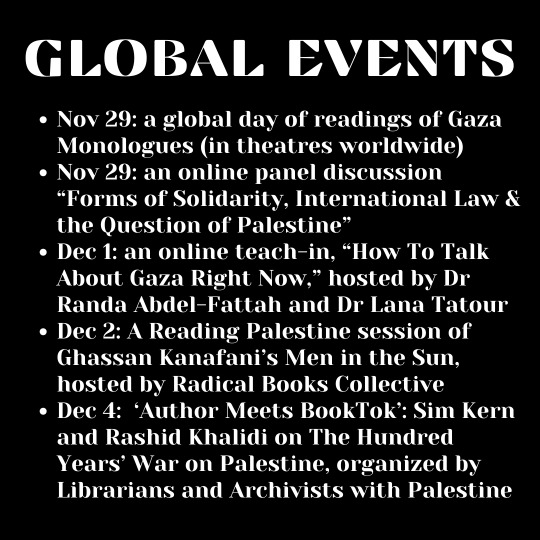
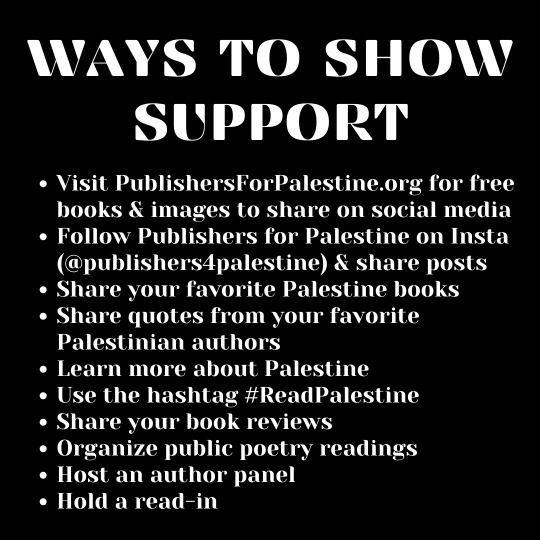
Read Palestine Week
🇵🇸 Good morning, my beautiful bookish bats. Can I start by saying a huge THANK YOU for sharing my Queer Palestinian Book post? Seriously, thank you so much. Let's keep that momentum by observing Read Palestine Week (Nov 29 - Dec 5). I've compiled a list of books to help you, along with a list of upcoming events and resources you can use this week and beyond.
🇵🇸 A collective of over 350 global publishers and individuals issued a public statement expressing solidarity with the Palestinian people. Publishers for Palestine have organized an international #ReadPalestine week, starting today (International Day of Solidarity with the Palestinian People).
🇵🇸 These publishers have made many resources and e-books available for free (with more to come). A few include award-winning fiction and poetry by Palestinian and Palestinian diaspora authors. You'll also find non-fiction books about Palestinian history, politics, arts, culture, and “books about organizing, resistance, and solidarity for a Free Palestine.” You can visit publishersforpalestine.org to download some of the books they have available.
POETRY
🌙 Things You May Find Hidden in My Ear by Mosab Abu Toha
🌙 Affiliation by Mira Mattar
🌙 Enemy of the Sun by Samih al-Qasim
🌙 I Saw Ramallah by Mourid Barghouti
🌙 A Mountainous Journey by Fadwa Tuqan
🌙 So What by Taha Muhammad Ali
🌙 The Butterfly’s Burden by Mahmoud Darwish
🌙 To All the Yellow Flowers by Raya Tuffaha
FICTION
🌙 Gate of the Sun by Elias Khoury
🌙 Speak, Bird, Speak Again: Palestinian Arab Folktales
🌙 Men in the Sun by Ghassan Kanafani
🌙 Morning in Jenin by Susan Abulhawa
🌙 Gaze Writes Back by Young Writers in Gaze
🌙 Palestine +100:Stories from a Century after the Nakba
🌙 Wild Thorns by Sahar Khalifeh
🌙 Out of Time by Samira Azzam
🌙 The Skin and Its Girl by Sarah Cypher
🌙 You Exist Too Much by Zaina Arafat
🌙 A Woman is No Man by Etaf Rum
🌙 Salt Houses by Hala Alyan
🌙 A Map of Home by Randa Jarrar
🌙 Against the Loveless World by Susan Abulhawa
🌙 Minor Detail by Adania Shibli
🌙 The Woman From Tantoura by Radwa Ashour
NON-FICTION
🌙 Blood Brothers by Elias Chacour
🌙 Strangers in the House: Coming of Age in Occupied Palestine by Raja Shehadeh
🌙 Palestinian Art, 1850–2005 by Kamal Boullata
🌙 Palestine by Joe Sacco
🌙 The Hour of Sunlight: One Palestinian’s Journey from Prisoner to Peacemaker by Sami Al Jundi & Jen Marlowe
🌙 Palestine: A Four Thousand Year History by Nur Masalha
🌙 Justice for Some: Law and the Question of Palestine by Noura Erakat
🌙 The Words of My Father: Love and Pain in Palestine by Yousef Khalil Bashir
🌙 Traditional Palestinian Costume: Origins and Evolution by Hanan Karaman Munayyer
🌙 Mountain against the Sea: Essays on Palestinian Society and Culture by Salim Tamari
🌙 This Is Not a Border: Reportage and Reflection from the Palestine Festival of Literature
🌙 We Could Have Been Friends, My Father and I: A Palestinian Memoir, by Raja Shehadeh
🌙 Les échos de la mémoire. Une enfance palestinienne à Jérusalem, by Issa J. Boullata
🌙 A Party For Thaera: Palestinian Women Write Life In Prison
🌙 Light in Gaza: Writings Born of Fire,
🌙 Voices of the Nakba: A Living History of Palestine
#free palestine#save palestine#books#book list#book recs#book recommendation#booklr#book blog#batty about books#battyaboutbooks#arab american heritage month#arab american writers#palestinian writers#palestinian poetry#poetry#poetry books#nonfiction#fiction books#queer fiction#queer community#queer books#muslim writers#read palestine week
205 notes
·
View notes
Text
[Video description: Dated black and white video of an interview between a man off-screen who speaks in an upper-crust English accent and a handsome brown man in his thirties seated at a table. He is lean with short curly dark hair, a very sixties moustache, and wearing a casual shirt with an open collar. The camera is zoomed in on him, leaning forward on his elbows, head low and tilted towards the interviewer, brow furrowed, and an intense gaze that flicks down at the table after each question in careful contemplation. He speaks with an Arab accent. The timer of the video recording ticks away at the top left of the frame.
Transcript:
Interviewer: "Why won't your organisation engage in peace talks with the Israelis?"
Ghassan Kanafani: "You don't mean exactly peace talks. You mean capitulation. Surrendering."
Interviewer: "Why not just talk?"
Ghassan: "Talk to whom?"
Interviewer: "Talk to the Israeli leaders."
Ghassan: "That's the kind of conversation between the sword and the neck, you mean."
Interviewer: "Well, if there's no swords or guns in the room you could still talk."
Ghassan: "No. I have never seen any talk between a colonialist case and a national liberation movement."
Interviewer: "But despite this, why not talk?"
Ghassan: "Talk about what?"
Interviewer: "Talk about the possibility of not fighting."
Ghassan: "Not fighting for what?"
Interviewer: "Not fighting at all, no matter what for."
Ghassan: "People usually fight for something, and they stop fighting for something so you can't even tell me speak about what—"
Interviewer: "—Stop fighting—"
Ghassan: "—Talk about stop fighting why?"
Interviewer: "Talk to stop fighting to stop the death and the misery, the destruction, the pain."
Ghassan: "The misery and the pain and the destruction and the death for whom?"
Interviewer: "Of Palestinians, of Israelis, of Arabs."
Ghassan: "Of the Palestinian people who are uprooted, thrown in the camps, living in starvation, killed for twenty years and forbidden to use even the name Palestinian?"
Interviewer: "Better that way than dead though."
Ghassan: "Maybe to you, but to us, it's not. To us, to liberate our country, to have dignity, to have respect, to have our mere human rights is something as essential as life itself."
Ghassan Kanafani is one of the heroes of the Palestinian liberation and celebrated in the canon of modern Arab literature. Forced out of his home with his family during the Nakba in 1948 at the age of ten, the shame of their surrender to Zionists moved him to devote his life to Arab nationalism, Marxist movements and Palestinian liberation through his career as a newspaper editor, journalist, novellist and non-combatant member of the armed resistance group Popular Front for the Liberation of Palestine. He coined the term "resistance literature" for the genre of his writing, that came to be instrumental in shaping the Palestinian national identity and ideology of its resistance. In 1972, he and his 17 year old niece were murdered in a car bomb by Mossad.
His obituary read:
"He was a commando who never fired a gun, whose weapon was a ball-point pen, and his arena the newspaper pages."
#i absolutely love the way he turned each question back at the interviewer#highlighting how every one is a vague and meaningless platitude#taking control of the interview and never losing it no matter how stupid or unwilling to engage with the issue the interviewer is#it's a masterclass in communications#his most famous book of short stories 'Men in the Sun' is in my gdrive linked in my pinned#ghassan kanafani#free palestine#glory to the martyrs#glory to the resistance#palestinian writers#palestinian liberation#palestinian history#knee of huss
61 notes
·
View notes
Text
“In ancient Rome, grief made men twirl in their thin, leather sandals and pirouette until their feet bled; in India, it walked widows onto pyres waiting for fire. The Persians gave the bodies of their deceased beloveds to dogs; the Egyptians buried them with servants. Grief will make you laugh at the funeral, weep over the cereal bowl; it will buzz your feet until they start dancing in the middle of the night. It’s grief that inspires the unlikeliest of bedfellows… Grief will pack your bag, quit your job, buy a white dress. It will make you say yes.”
- The Arsonists' City by Hala Alyan
#hala alyan#palestinian authors#palestinian writers#palestine#free palestine#from the river to the sea palestine will be free#grief#grief quotes#book quotes#marriage#marriage quotes#litfic
67 notes
·
View notes
Text
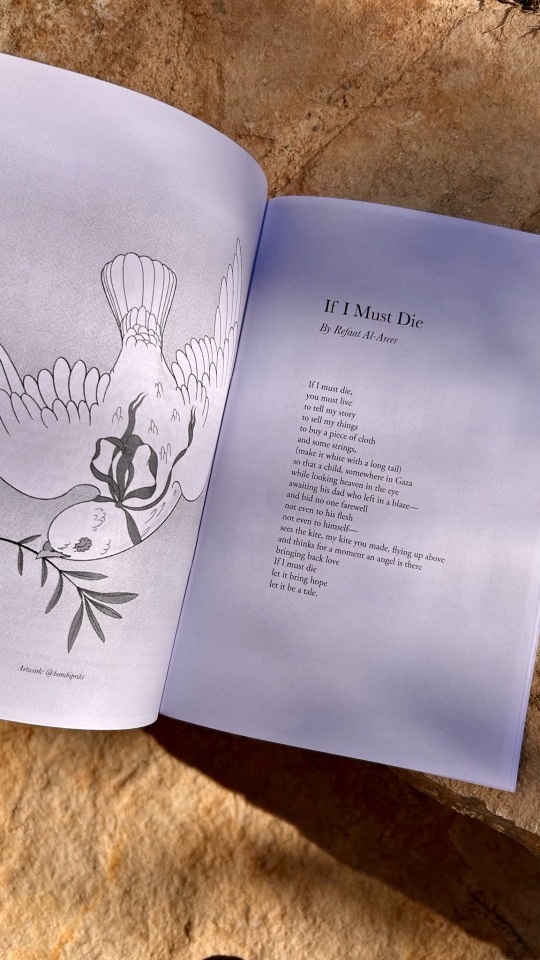
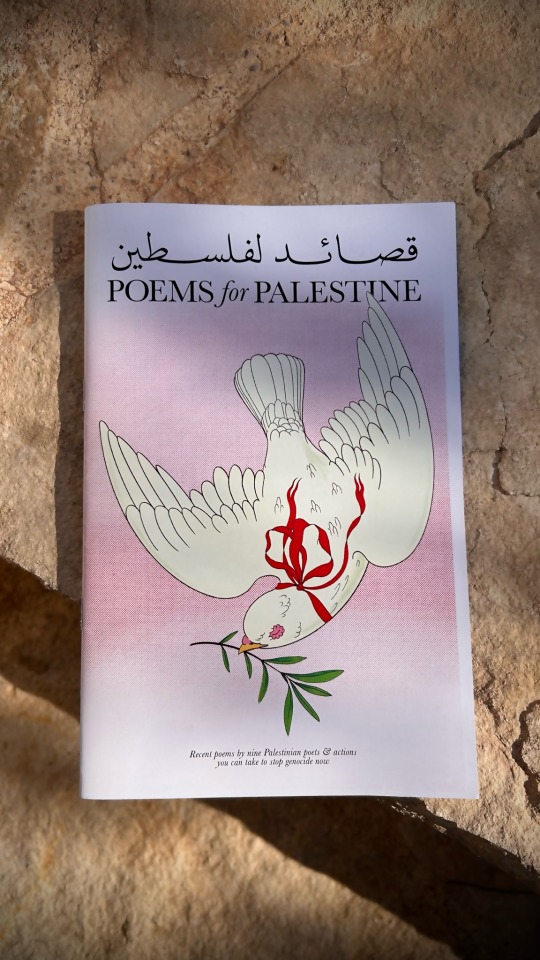
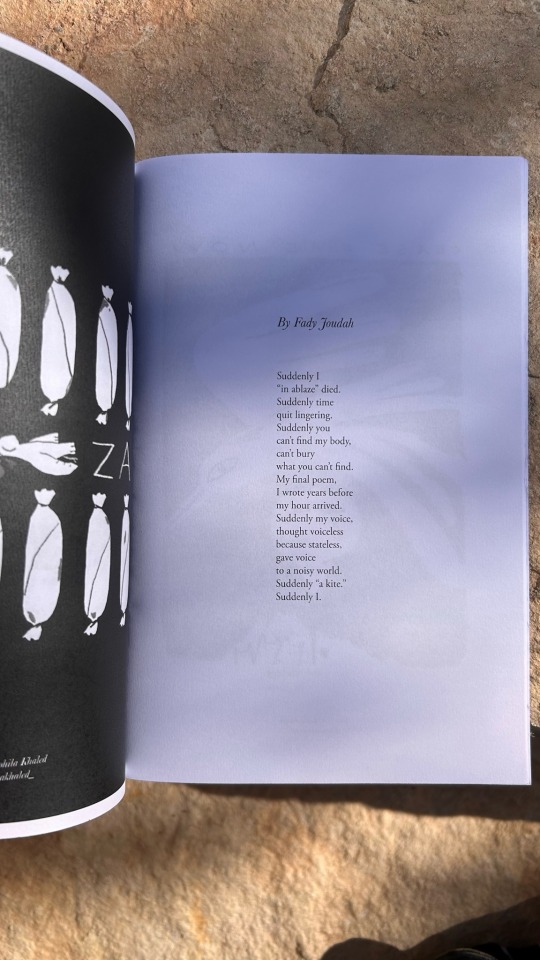
#faith and hope is the one thing they can never destroy#poems for Palestine#Palestine#from the river to the sea palestine will be free#palestinian writers#freedomisntfree#ramadan 2024#mine#sabr#writing#rise and resist#book#islamic quotes#arabic quotes#quotes
28 notes
·
View notes
Text
SUPPORT THE CURATOR IN LINK ABOVE
SUPPORT PALESTINIAN CURATORS, WRITERS, ARTISTS, HISTORIANS, and ARCHIVISTS.
682 notes
·
View notes
Text
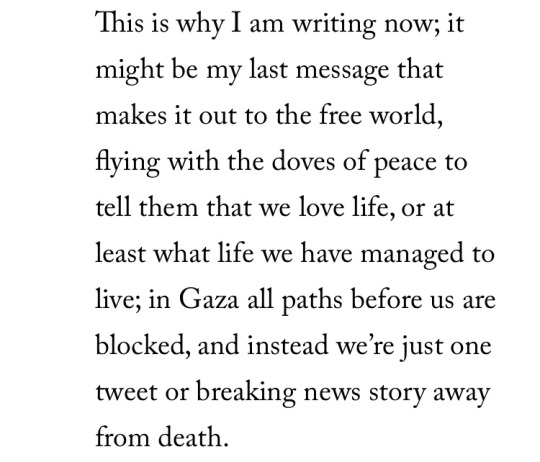

Nour al-Din Hajjaj’s final message
[Text ID: “This is why I am writing now; it might be my last message that makes it out to the free world, flying with the doves of peace to tell them that we love life, or at least what life we have managed to live; in Gaza all paths before us are blocked, and instead we’re just one tweet or breaking news story away from death.
One of my dreams is for my books and my writings to travel the world, for my pen to have wings so that no unstamped passport or visa rejection can hold it back.
Another dream of mine is to have a small family, to have a little son who looks like me and to tell him a bedtime story as I rock him in my arms.”]
#such small dreams#nour al-din hajjaj#palestinian writers#excerpts#writings#literature#fragments#selections#words#quotes#palestinian literature
2K notes
·
View notes
Text
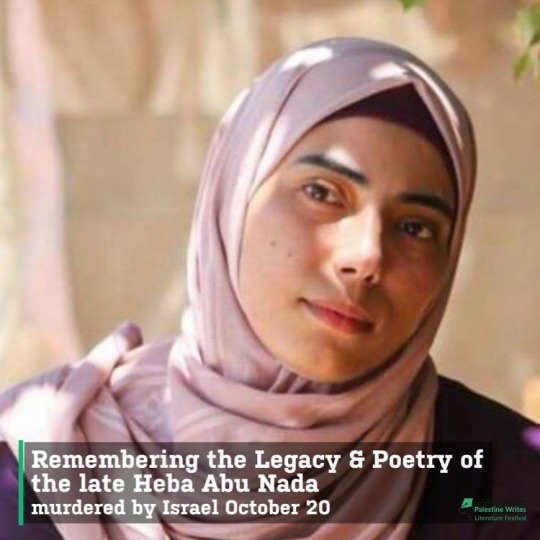

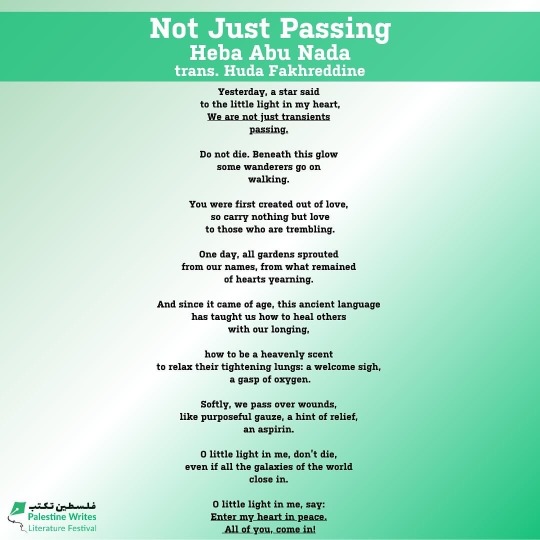

#palestine#human rights#free palestine#Gaza#free gaza#heba Abu nada#poetry#poets#writers#palestinian genocide#palestinian women#palestinian writers#palestinian poetry
37 notes
·
View notes
Text
🇵🇸🕊️ Palestinians and the world must not lose hope
🔸 Written by Mariam Barghouti, a Palestinian American writer based in Ramallah.
“The feeling of numbness, of paralysis among Palestinians is one of the aims of the Israeli “attrition” strategy. A war of attrition is meant to create the conditions to drain, exhaust and weaken an opponent. It is meant to diminish the capacity to fight back.
Israel’s goal is the emotional, moral and mental depletion of those resisting its occupation and colonisation so they lose motivation and commitment to engage and mobilise in the face of brute repression.
(….)
Recognise this: Palestinians are not buried yet, and while the destruction is massive, so is the number of survivors with dreams to pursue, miracles to witness, and a faith in humanity to be re-instiled.
Amid all the destruction there is life, and Palestinians are putting up one hell of a fight for it.”
- Fragments of the article. 🇵🇸💚
#palestine#free palestine#hope#gaza#free gaza#israel#tel aviv#rafah#palestinian resistance#palestinian writers
15 notes
·
View notes
Text
Palestinians have a right to defend themselves. Palestinians have a right to build a movement of resistance. In oppressor and oppressed dynamics, both identities suffer. Yet the oppressor has a layer of denial that doesn’t allow them to see the reality as it is. This denial represses their own pain and suffering as well as the reality of the oppressed. - Hadar Cohen "My Jewish Perspective: Free Palestine"
22 notes
·
View notes
Text
30/11/2023 • I
Una citazione da Una trilogia palestinese al giorno
Si è legata l'esplosivo alla vita e si è fatta esplodere. Non si tratta di morte, non si tratta di suicidio.
È il modo in cui Gaza dichiara che merita di vivere.
Da quattro anni, la carne di Gaza schizza schegge di granate in ogni direzione.
Non si tratta di magia, non si tratta di prodigio.
È l'arma con cui Gaza difende il diritto a restare e snerva il nemico.
Da quattro anni, il nemico esulta per aver coronato i propri sogni, sedotto dal flirtare con il tempo, eccetto a Gaza. Perché Gaza è lontana dai suoi cari e attaccata ai suoi nemici, perché Gaza è un'isola. Ogni volta che esplode, e non smette mai di farlo, sfregia il volto del nemico, spezza i suoi sogni e ne interrompe l'idillio con il tempo. Perché il tempo a Gaza è un'altra cosa, perché il tempo a Gaza non è un elemento neutrale. Non spinge la gente alla fredda contemplazione, ma piuttosto a esplodere e a cozzare contro la realtà. Il tempo laggiù non porta i bambini dall'infanzia immediatamente alla vecchiaia, ma li rende uomini al primo incontro con il nemico. Il tempo a Gaza non è relax, ma un assalto di calura cocente. Perché i valori a Gaza sono diversi, completamente diversi. L'unico valore di chi vive sotto occupazione è il grado di resistenza all'occupante. Questa è l'unica competizione in corso laggiù. E Gaza è dedita all'esercizio di questo insigne e crudele valore che non ha imparato dai libri o dai corsi accelerati per corrispondenza, né dalle fanfa re spiegate della propaganda o dalle canzoni patriottiche. L'ha imparato soltanto dall'esperienza e dal duro lavoro che non è svolto in funzione della pubblicità e del ritorno d'immagine.
Mahmoud Darwish
#mahmoud darwish#palestine#palestinian literature#palestinian writers#free palestine#free gaza#gaza#gaza strip#gaza genocide#i stand with palestine#israel#literature#book quotes#mailmiocuoredipietratremaancora
10 notes
·
View notes
Text
#just read this guy's book today and#fuck#palestinian writers#palestine#free palestine#palestinian poetry#palestinian people#palestinian history#I feel like stuff like this a good reminder#of how Long this has been going on for#nakba#palestinian authors#arab#arab writers#muslim#muslim writers#arab history#poetry#poetry magazine#anti colonialism#decolonization
16 notes
·
View notes